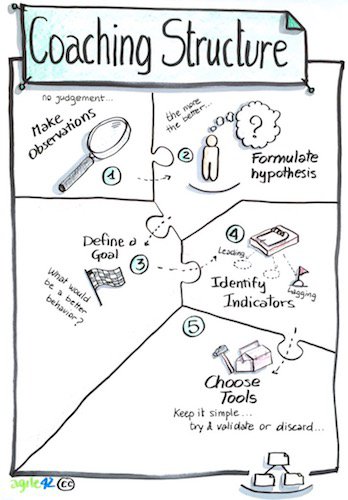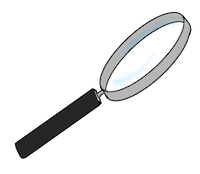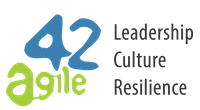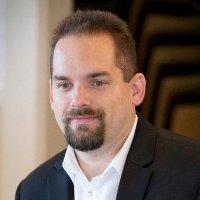Combatting Observer Bias in Coaching with the Team Coaching Framework (TCF)
In research, psychology, and any other field in which someone is intended to be an impartial observer, there is a phenomenon known as the Observer Expectancy Effect, or Observer Bias. This bias happens when an observer expresses their thoughts and expectations about a situation through tone, word choice, and body language in a way that influences how the people they are observing behave.
The observer expectancy effect can be subtle, but it can also be quite profound. In some research, the observer has been shown to unconsciously change the way a subject performs in a test based on whether the observer was told they were “smart” or “dumb” subjects.
Right about now, you’re probably thinking “Well I wouldn’t do that! I’m a professional!” and there I have bad news for you. We all do it. Because it’s largely unconscious, we can’t help it. The only way that’s been found to consistently address the problem is to not have any expectations, and that is really difficult. Even if we can enter a situation with none, human nature causes us to start forming them very quickly. As coaches, our opinions and unconscious biases can mislead or misdirect those we are coaching. Therefore, it is important that we are aware and careful of this effect.
At agile42, we use a structured approach to change on teams called the Team Coaching Framework (TCF) to limit or negate the impact of any observer bias we might bring to the table.
Structured Coaching through Coaching Cards

In TCF, we leverage a structure that helps us avoid jumping ahead of ourselves in coaching. This structure starts with observations, then makes hypotheses about why those observations exist, co-created with those we are working with wherever possible. Once we settle on a hypothesis to work with, we set a goal and ways to measure that goal. Finally, we select tools to use to help get to this goal. Following this structure pushes our own opinions as far out in the process as possible in order to reduce the likelihood of influencing the process accidentally.
Micro-Observations
 “The ScrumMaster is the center of conversation for the Daily Scrum.”
“The ScrumMaster is the center of conversation for the Daily Scrum.”
Does this sound like an observation to you? It isn’t. It’s actually an inference about a pattern of observations. If that sounds pedantic, that’s ok – in many cases like this, it is a fair inference about a real pattern. But when we come to our hypotheses, this nuanced difference might really matter.
When we look at the actual events that occur, we may see that every person only speaks to the ScrumMaster. Or, we might see that people primarily speak to the ScrumMaster but they also update the board and occasionally speak to each other. Both of these patterns could be expressed as the ScrumMaster being the center of the conversation, but in the first, we may hypothesize that there is a structural component leading to the behavior, while in the second it is clear that nothing is blocking the team from speaking to each other – perhaps there is social pressure or a habit leading to this behavior.
Reflecting back on these “micro-observations” can free us from anchors we’ve formed in our perspective.
Pairing or Coaching Groups
Having an extra set of eyes will almost certainly result in a different set of observations. Comparing these after-the-fact can help both coaches in removing their bias from the coaching. When doing this, the coaches can either decide to both watch everything or they can choose to have one coach focus on a very specific thing while the other takes a broad view in his or her observations. This second approach is particularly helpful when you are coaching a team through a particular challenge or new skill.
Multiple Hypotheses

One of the most common problems when formulating hypotheses is that we select the hypothesis that most closely matches our preconceptions or past experiences and then look for information that shows this hypothesis to be true.
In order to avoid this, we try to brainstorm multiple hypotheses in each coaching card. We will usually pursue only one at a time, but taking the time to come up with multiple hypotheses helps break us out of our own assumptions.
Coaching Tip: If you do this as a group, other coaches may come up with hypotheses you would never have thought of.
Invalidate Your Hypothesis

“It is tempting, if the only tool you have is a hammer, to treat everything as if it were a nail.” – Abraham Maslow
We are bombarded with a lot of information and our brain subconsciously filters out everything that we don’t think is relevant. When we try to validate a hypothesis, we can unconsciously filter out information that doesn’t support the hypothesis. This is called confirmation bias. One way to avoid this is to specifically look for information that disproves your hypothesis. Because you’re specifically looking for it, you are less likely to subconsciously filter it out.
Note: I recommend looking at the works of Robert Rosenthal, which primarily studied the effects of biases in childhood education.





